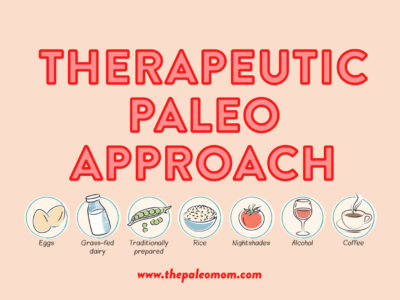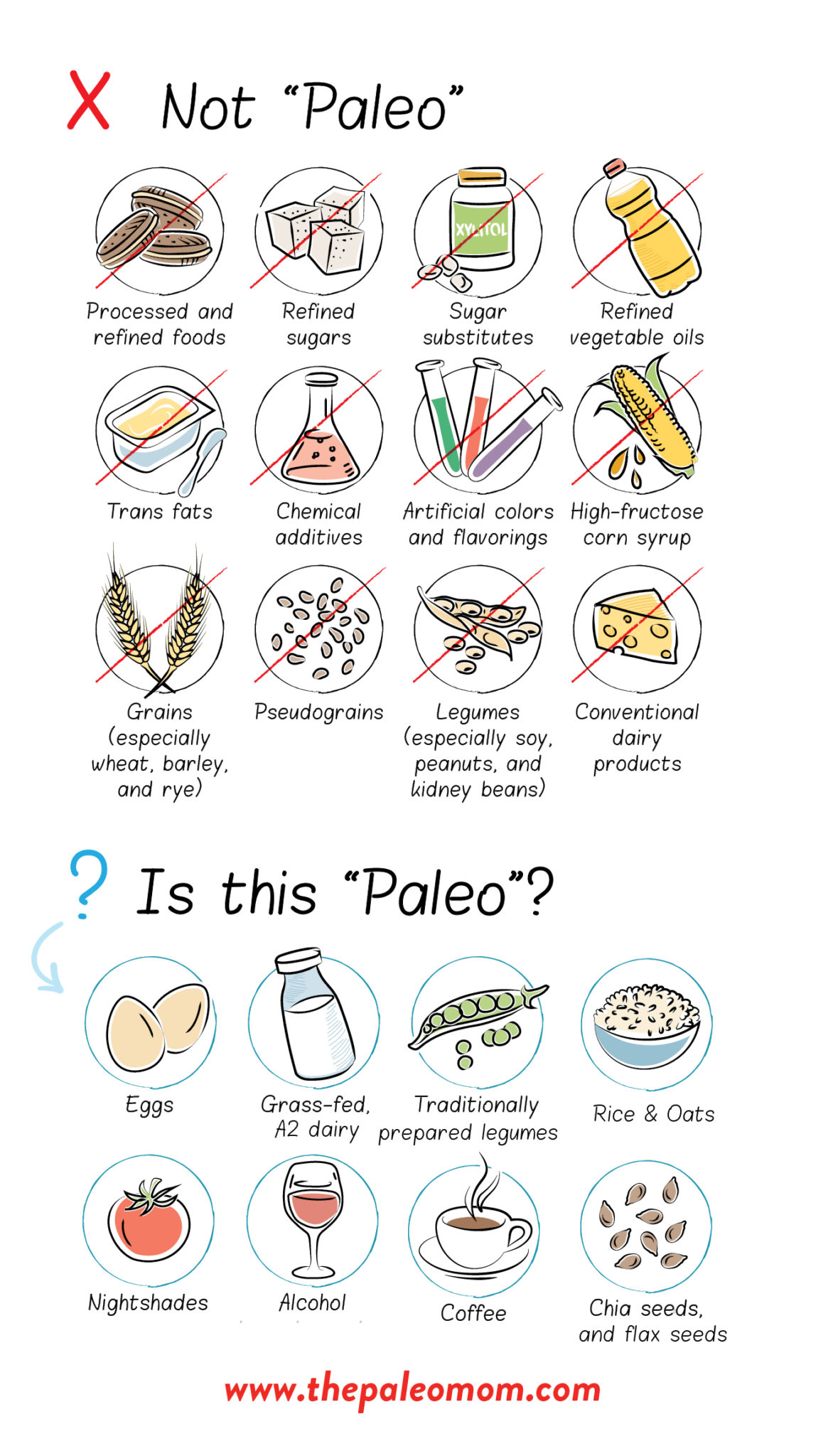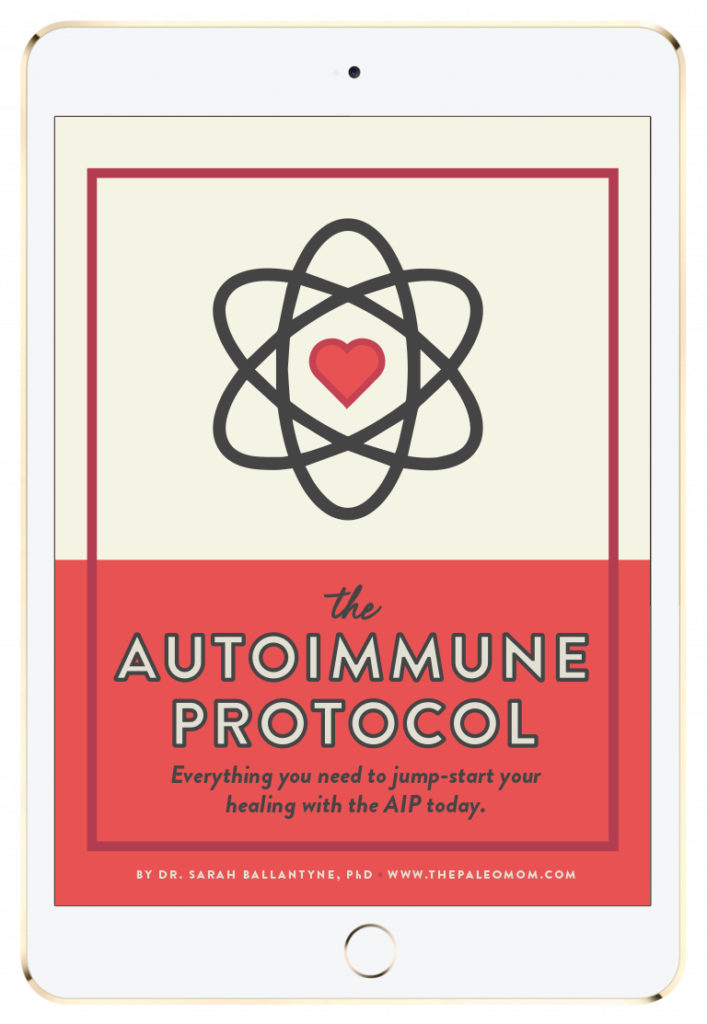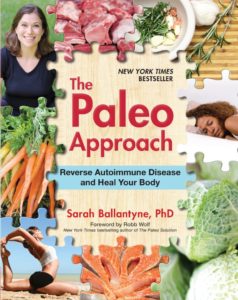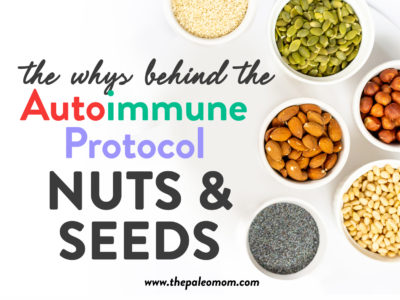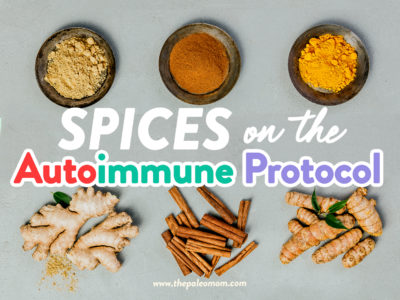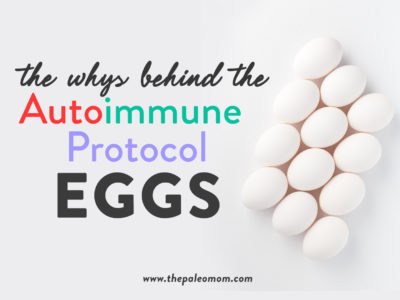I have followed a Paleo diet and lifestyle for nearly eight years, and I owe my health to a Therapeutic Paleo Approach. But, I want to get something straight: I don’t “eat like a caveman”. This and similar soundbite explanations of the Paleo template don’t resonate with me (since I don’t approach Paleo as an historical re-enactment), but I also see distilling this framework to such a simplistic meme as being inherently problematic.
How Cavemen Ate is the Hypothesis (Not the Proof)
“Eating like a caveman” isn’t the real reason for following this diet in the first place! Paleoantropology and evolutionary biology are fascinating stuff (see for example The Diet We’re Meant to Eat, Part 1: Evolution & Hunter-Gatherers and Carbs Vs. Protein Vs. Fat: Insight from Hunter-Gatherers); but, inferences of how our hunter-gatherer ancestors ate and lived, of how changes in the human diet drove human evolution, and observations of modern hunter-gatherer societies together form the data needed to devise a hypothesis. We simply can’t say that hunter-gatherers don’t experience any of the chronic health problems plaguing Western societies today because their diet is so healthy! At least, not without running some experiments to test that hypothesis!
That’s why I use my medical research background to dive deep into the tremendous body of scientific literature that explains how diet and lifestyle impact our physiology, cellular biology, molecular biology and biochemistry. I seek to thoroughly understand our how our body uses nutrients from foods, what happens when we don’t supply our body’s with adequate nutrients, how compounds in foods impact our biological systems at the cellular and molecular levels, and how lifestyle choices also impact those systems.
The good news is that when we take this modern scientific approach to understanding optimal human diet, we come to the same major conclusions as the Paleo diet as originally framed (why I continue to create resources and write under The Paleo Mom banner).
There are a few foods that aren’t traditionally considered Paleo that are likely health-promoting for most people (most notably, gluten-free oats, rice, lentils, split peas, chickpeas and A2 dairy, see Goat Milk: The Benefits of A2 Dairy and Updates to the Autoimmune Protocol) and a few foods that are traditionally included on the Paleo diet that may be problematic for many people (most notably nightshades, see What Are Nightshades? and The WHYs behind the Autoimmune Protocol: Nightshades). I consider these gray area foods, candidates for self-experimentation. See also Paleo Principles.
In addition, there are foods worthy of additional focus thanks to their nutrient-density or functional food status that could be given additional emphasis on the Paleo diet (most notably, organ meat, seafood, high vegetable consumption, and mushrooms, see also The Importance of Nutrient Density Why Everyone Should Be Eating Organ Meat, The Importance of Fish in Our Diets, Oysters, Clams, and Mussels, Oh My! Nutrition Powerhouses or Toxic Danger?, Why Seaweed is Amazing!, The Importance of Vegetables, The Amazing World of Plant Phytochemicals: Why a diet rich in veggies is so important!, and Elevating Mushrooms to Food Group Status). See also Paleo Principles.
Using this contemporary scientific approach to defining optimal human diet actually leaves much more room for respecting bioindividuality provided we also respect universal truths, those aspects of a healthy diet that apply to everyone (such as meeting our nutritional requirements from foods, also called nutrient sufficiency). See Genetic Adaptations to Neolithic Foods: Understanding Bioindividuality. And, using a science-led approach (meaning that we don’t cherrypick studies that support our beliefs but rather consider the entire body of scientific literature when forming recommendations) means that our dietary framework is open to new evidence (and can adapt as needed, see Updates to the Autoimmune Protocol) and can withstand criticism (thanks to all those facts backing up each facet!).
The Problem with Defining a Diet by Eliminations
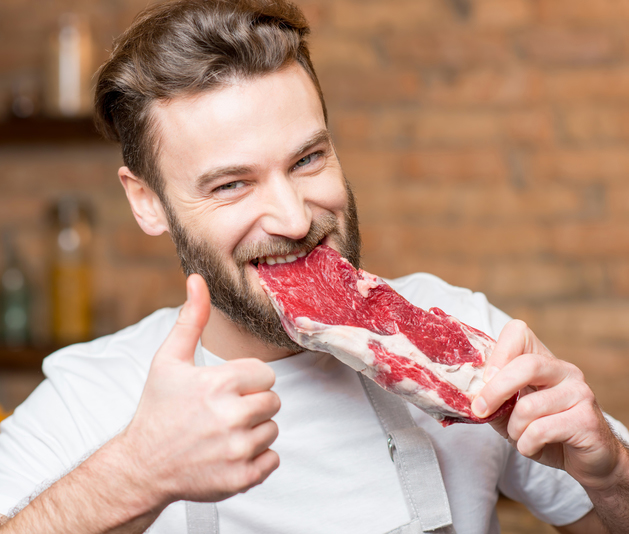 You can’t determine whether or not a diet is healthy based on what you don’t eat. It’s what you actually put into your mouth (and chew and swallow) that counts!
You can’t determine whether or not a diet is healthy based on what you don’t eat. It’s what you actually put into your mouth (and chew and swallow) that counts!
The expanded explanation for the “eat like a caveman” soundbite goes something like this: “caveman only ate what they could hunt and gather, so they didn’t eat grains, legumes, dairy, or any modern, refined or processed food”. A long list of foods to avoid is how the Paleo diet was traditionally defined (and still is in many corners of the internet and your local bookstore), and there are some major implications.
First, you can absolutely avoid all the verboten foods and still miss out on tons of essential nutrients. In fact, analyses of various Paleo meal plans from early Paleo diet books show that the Paleo diet (circa 2009-2014) is routinely short on biotin, folate, choline, vitamin E, vitamin K2, vitamin D, vitamin B12, calcium, chromium,iron, magnesium, manganese, potassium, iodine, and selenium. Ouch!
Second, if you define a diet based on what you eliminate, then the obvious first place to troubleshoot is… eliminate more! The mindset has directly led to the popularity of potentially harmful fad diets like keto and carnivore (see How Ketogenic Diet Wreaks Havoc on Your Gut, Adverse Reactions to Ketogenic Diets: Caution Advised, The Case for More Carbs: Insulin’s NonMetabolic Roles in the Human Body and TPV Podcast, Episode 316: Is the Carnivore Diet Healthy?). Meanwhile, the real place to troubleshoot may be to eat more variety in order to expand the nutritional profile of your diet (nutritional inefficiencies may be to blame for lack of success on an old school Paleo diet), and investigating other common problems that relate to our modern lifestyles like chronic stress, insufficient sleep, hormone imbalances, gut dysbiosis, etc.
Save 70% Off the AIP Lecture Series!
Learn everything you need to know about the Autoimmune Protocol to regain your health!
I am loving this AIP course and all the information I am receiving. The amount of work you have put into this is amazing and greatly, GREATLY, appreciated. Thank you so much. Taking this course gives me the knowledge I need to understand why my body is doing what it is doing and reinforces my determination to continue along this dietary path to heal it. Invaluable!
Carmen Maier
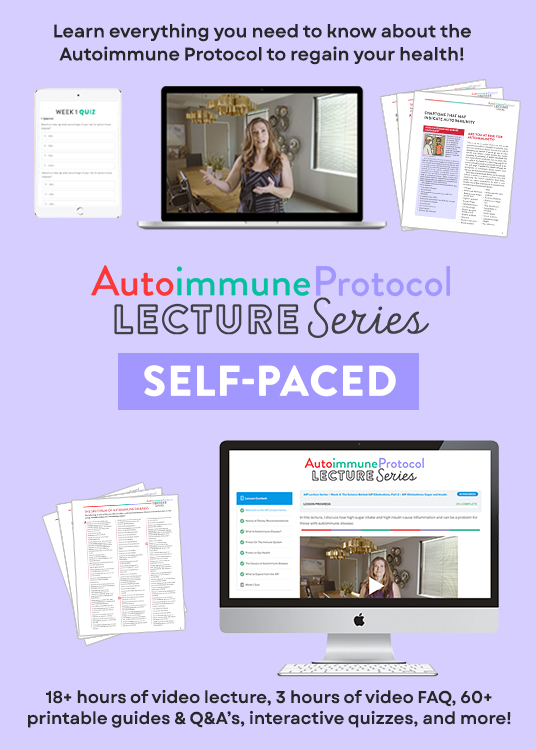
That’s why I believe that the Paleo diet (and the Autoimmune Protocol and all the shades of diet in between) need to be defined based on what you actually eat (vegetables, fruit, mushrooms, herbs, spices, fish, shellfish, sea vegetables, meat [snout-to-tail], eggs, nuts, seeds, and healthy fats).
That’s also why I believe that it’s essential to engage in learning about the reasons for why we eat the way we do on the Paleo diet. I truly believe that the only way we’ll be able to reverse the epidemics of chronic illness facing Western societies today is by providing a comprehensive education on nutrition and lifestyle, improving scientific literacy on topics related to health, valuing high quality scientific evidence, emphasizing universal truths, and respecting bioindividuality.
Drum roll please…
Announcing the Therapeutic Paleo Approach Online Course!
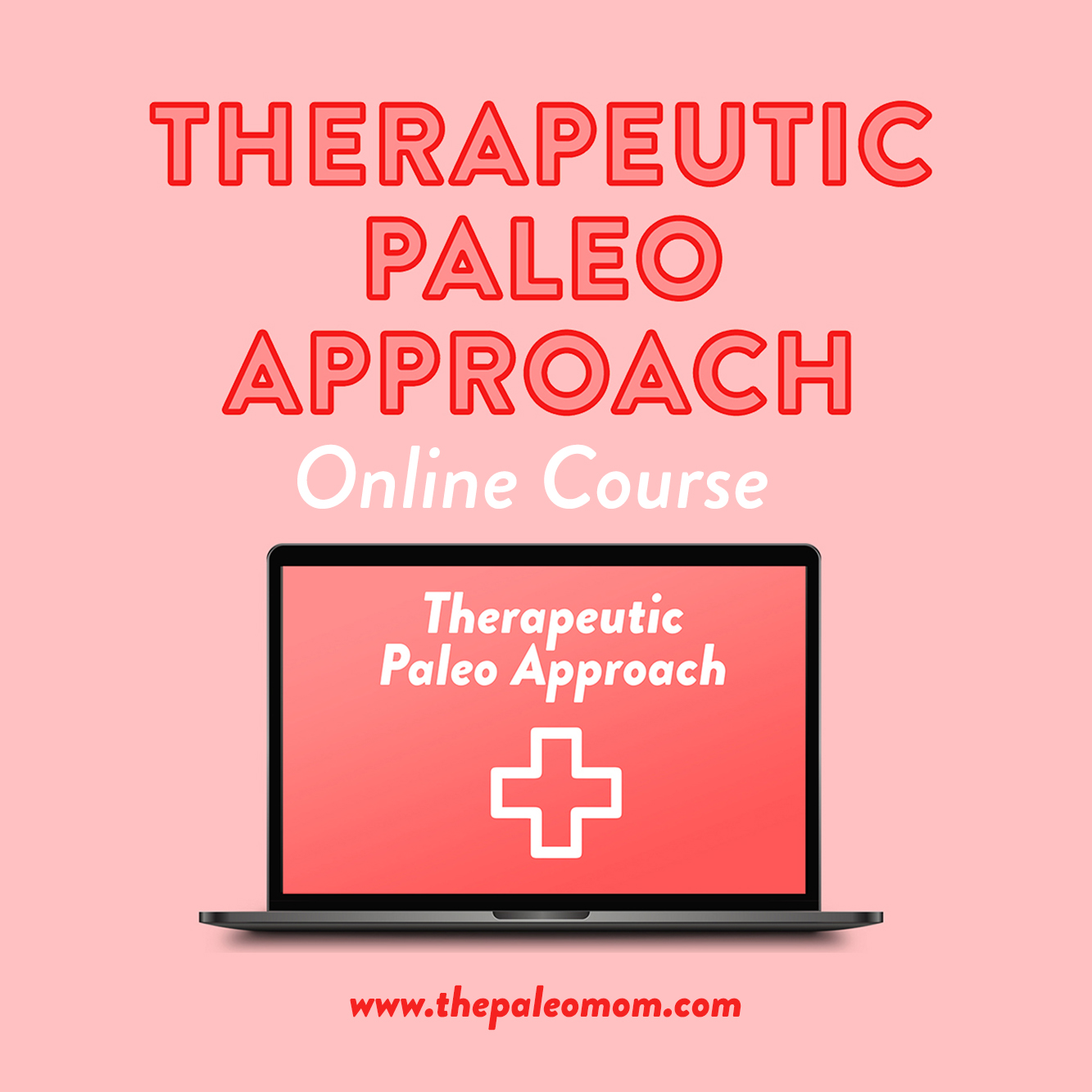 That’s why I created the Therapeutic Paleo Approach online course. In this online course, I examine the foundational diet and lifestyle principals to optimally support human health, building the Paleo diet from the ground up led by contemporary quality scientific evidence, focusing on our nutritional needs (and not what cavemen ate!).
That’s why I created the Therapeutic Paleo Approach online course. In this online course, I examine the foundational diet and lifestyle principals to optimally support human health, building the Paleo diet from the ground up led by contemporary quality scientific evidence, focusing on our nutritional needs (and not what cavemen ate!).
I created this online course so that you can be well versed in the relevant science no matter your background (this course is geared at the general public and you do not need a scientific background to take this course). That way you can help to educate your friends, your family, your coworkers, maybe even your doctor. If you don’t think you’ll sit and read Paleo Principles cover-to-cover, if you learn best by watching video or listening to audio, or if you want to dig into the topics of essential nutrients and using Paleo to mitigate chronic illness in more detail, this is the course for you!
Expanding on the foundation of optimal human diet and lifestyle, I further review scientifically-proven diet and lifestyle factors to reduce risks of the highest mortality and morbidity chronic diseases, including: cardiovascular disease, diabetes, cancer, obesity, metabolic syndrome, asthma, Alzheimer’s disease, chronic kidney disease and autoimmune disease. For each of these chronic disease classes, I discuss how to modify the Paleo diet to maximize its therapeutic potential. This course culminates in a thorough introduction to the Autoimmune Protocol (if you don’t think you’re ready for the intensive nature of The AIP Lecture Series, the Therapeutic Paleo Approach online course is a great entry point!).
In the age of the internet, misinformation, and crafty marketing campaigns, it’s more important than ever to be empowered with knowledge and the ability to critically assess claims. In this online course, we’ll lean in to challenging and controversial topics, and I’ll bust a bunch of common myths that can actually harm your health instead of improve it.
This online course includes 5 hours of video lecture, including downloadable and printable PDFs of my presentations slides.
The topics I cover in detail include:
- Nutrient requirements of biological systems
- Prevalence and sources of nutrient deficiencies
- Top sources of nutrients commonly deficient
- Designing a nutrient-sufficient diet (surprise! it’s the Paleo diet!)
- Sleep as a linchpin of health
- Impact of stress on health
- Activity balance and health
- Connection and health
- Diet vs. Lifestyle: priorities and synergy
- Nutrient, diet and lifestyle links to the top mortality- and morbidity-causing chronic illnesses
- cardiovascular disease
- type 2 diabetes
- cancer
- obesity
- asthma
- Alzheimer’s disease
- chronic kidney disease
- autoimmune disease
- An introduction to the Autoimmune Protocol

In this comprehensive online course, I take a modern scientific approach to optimal human diet, explaining the nutrient requirements of human biological systems and building a dietary framework centered on nutrient-sufficiency, meaning that you get all of the nutrients your body needs to function optimally from food. When you choose foods based on the nutritional needs of the human body, you end up with a dietary framework that strongly resembles the Paleo diet while respecting bioindividuality. I also emphasize the limitations of dietary guidelines that do not take the connectivity of biological systems and the complexity of inputs to health into account.
Diet is but one input to health, so I put equal emphasis on lifestyle, covering in depth how sleep, stress, activity, and connection each impact our biological systems. Lifestyle choices also impact how easy good food choices are, so this focus on the role of lifestyle factors in health and healing can also be the missing piece for anyone struggling to implement specific dietary priorities.
Beyond supporting optimal health, diet and lifestyle choices can provide therapeutic benefit in a wide variety of chronic illnesses. Delving into the scientifically-proven links between specific nutrients, dietary trends, and lifestyle factors with cardiovascular disease, diabetes, cancer, obesity, metabolic syndrome, asthma, Alzheimer’s disease, chronic kidney disease and autoimmune disease, I further underline priorities to maximize therapeutic potential of day-to-day choices, culminating in the Autoimmune Protocol.
Recharge Your Health Journey!
Learn the latest science-grounded information on therapeutic diet and lifestyle!
Get Instant Digital Access for $179
Want an upgrade? Because I know you’re super excited to dive into this enlightening content, I want to mention that you can get all four of my new online courses (Introduction to Nutritional Sciences, Therapeutic Paleo Approach, Healthy Weight Loss, and Gut Health Fundamentals) plus an awesome bonus lecture on Fad Diet Recovery in The Foundations of Health Online Course Collection. This online course collection includes a total of 15 (!) hours of video lecture, including downloadable and printable PDFs of my 650(!) presentations slides.
Learn more about The Foundations of Health Collection here.
The AIP Lecture Series vs. Therapeutic Paleo Approach
Wondering which online course will better serve your needs?

If you have a confirmed or suspected autoimmune disease diagnosis, The AIP Lecture Series is hands-down the best resource I’ve ever created and it’s the most thorough Autoimmune Protocol education for sufferers and their caregivers available anywhere. This 6-week video-based, self-directed intensive online course includes a private forum for discussions and asking me questions. Geared at autoimmune disease sufferers and their caregivers, in this course I teach you the scientific foundation for the diet and lifestyle tenets of the Autoimmune Protocol, plus helps you with implementation, refinement, reintroductions and troubleshooting! This course is appropriate for you whether you’re new to the AIP, are somewhat familiar but have questions or struggle to implement the AIP, and even if you’ve been following the AIP for a while.
Fair warning: The AIP Lecture Series is a super jam-packed online course and it takes most students 8-10 hours per week to go through all of the materials, watch the videos, and do their (completely optional) homework. That’s why I’ve made it so that you retain lifetime access to all of the course materials and even the private Facebook group for your session That way, you can continue to refer back to materials as needed, or go through the course at your own pace. I hope you’ll join the next session, which starts Monday, September 9th, 2019 (because of the interactive nature of this course, I only teach two sessions per year). Registration is now officially open and right now, you can still get a 20% early-bird discount off tuition! Learn more here.
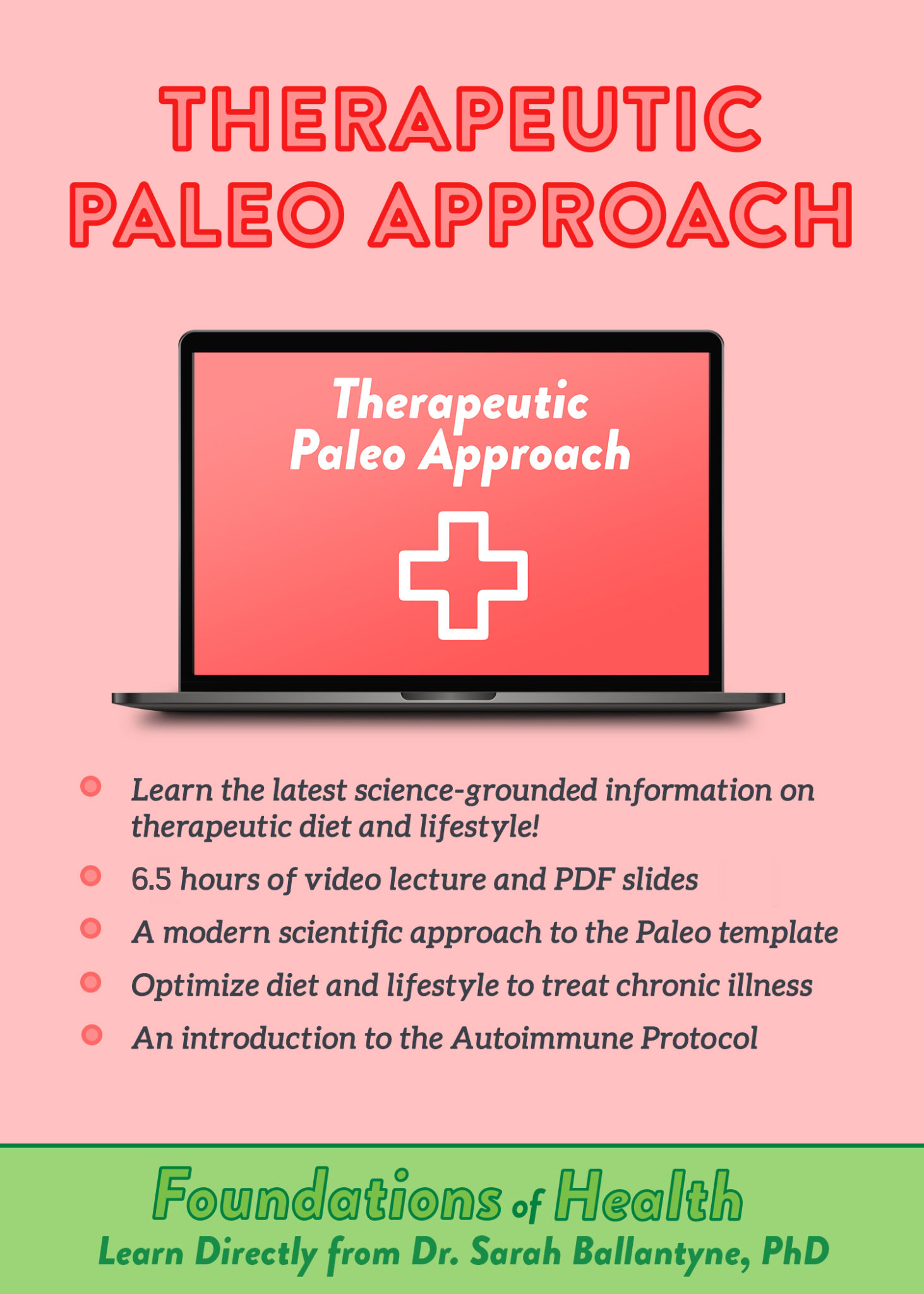 If you don’t have autoimmune disease, then the Therapeutic Paleo Approach is the resource for you! The Therapeutic Paleo Approach online course is geared at understanding the best diet and lifestyle choices to support optimal health, with a strong focus on what to eat (and not much detail on the rationale for various eliminations). It’s a fantastic general health course and will provide you with actionable information on what to eat and how to support sleep, reduce stress, and incorporate movement. The Therapeutic Paleo Approach online course covers additional considerations for a wide range of chronic illnesses, and it does include a great introduction to the Autoimmune Protocol. The Therapeutic Paleo Approach online course is much less rigorous than The AIP Lecture Series, but this would be a better choice for autoimmune disease sufferers if you’re completely new to the idea of diet and lifestyle modifications for disease management and find the whole idea of following the AIP to be overwhelming.
If you don’t have autoimmune disease, then the Therapeutic Paleo Approach is the resource for you! The Therapeutic Paleo Approach online course is geared at understanding the best diet and lifestyle choices to support optimal health, with a strong focus on what to eat (and not much detail on the rationale for various eliminations). It’s a fantastic general health course and will provide you with actionable information on what to eat and how to support sleep, reduce stress, and incorporate movement. The Therapeutic Paleo Approach online course covers additional considerations for a wide range of chronic illnesses, and it does include a great introduction to the Autoimmune Protocol. The Therapeutic Paleo Approach online course is much less rigorous than The AIP Lecture Series, but this would be a better choice for autoimmune disease sufferers if you’re completely new to the idea of diet and lifestyle modifications for disease management and find the whole idea of following the AIP to be overwhelming.
If you are an alumni of The AIP Lecture Series, I don’t recommend the Therapeutic Paleo Approach online course unless you are additionally challenged by other chronic illnesses and are interested in that aspect of the curriculum. If this is the case, I would still recommend The Foundations of Health Online Course Collection, which includes the Gut Health Fundamentals online course (which goes into more detail on the gut microbiome than The AIP Lecture Series) and Healthy Weight Loss (relevant if a symptom of your autoimmune disease is weight gain or resistance to weight loss). It’s also worth emphasizing, that if you have friends or family who are interested in learning more about healthy eating but who aren’t ready for the intensive nature of The AIP Lecture Series, the Therapeutic Paleo Approach online course is a fantastic resource to recommend to them! This online course will give them a broad overview of important diet and lifestyle factors, in a non-dogmatic and evidence-led manner, while introducing all of the key facets of the Autoimmune Protocol.
Whichever resource is the better fit for you, I hope you enjoy the learning environments that I’ve created and immersing yourself in the scientific reasoning behind healthy diet and lifestyle choices!

